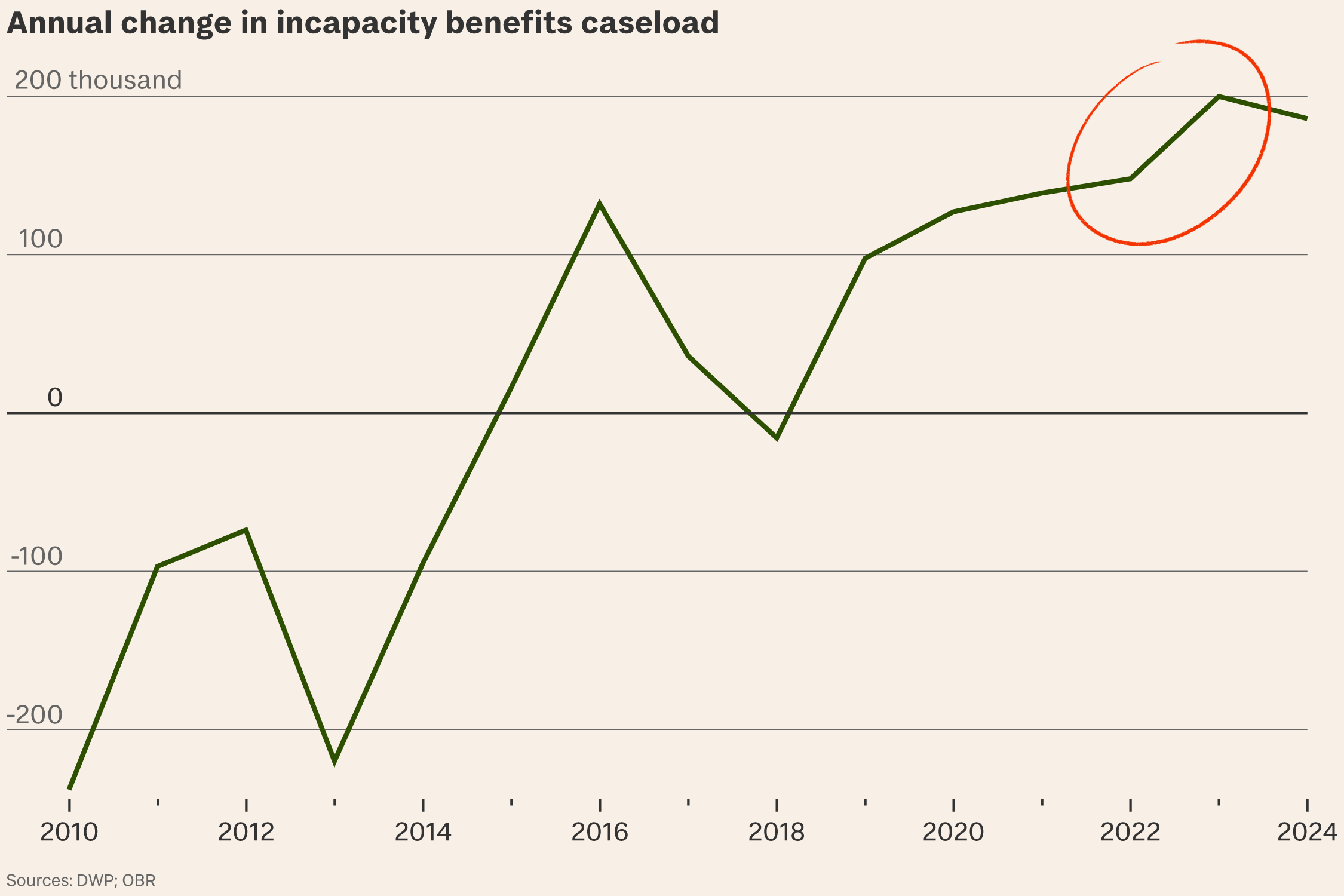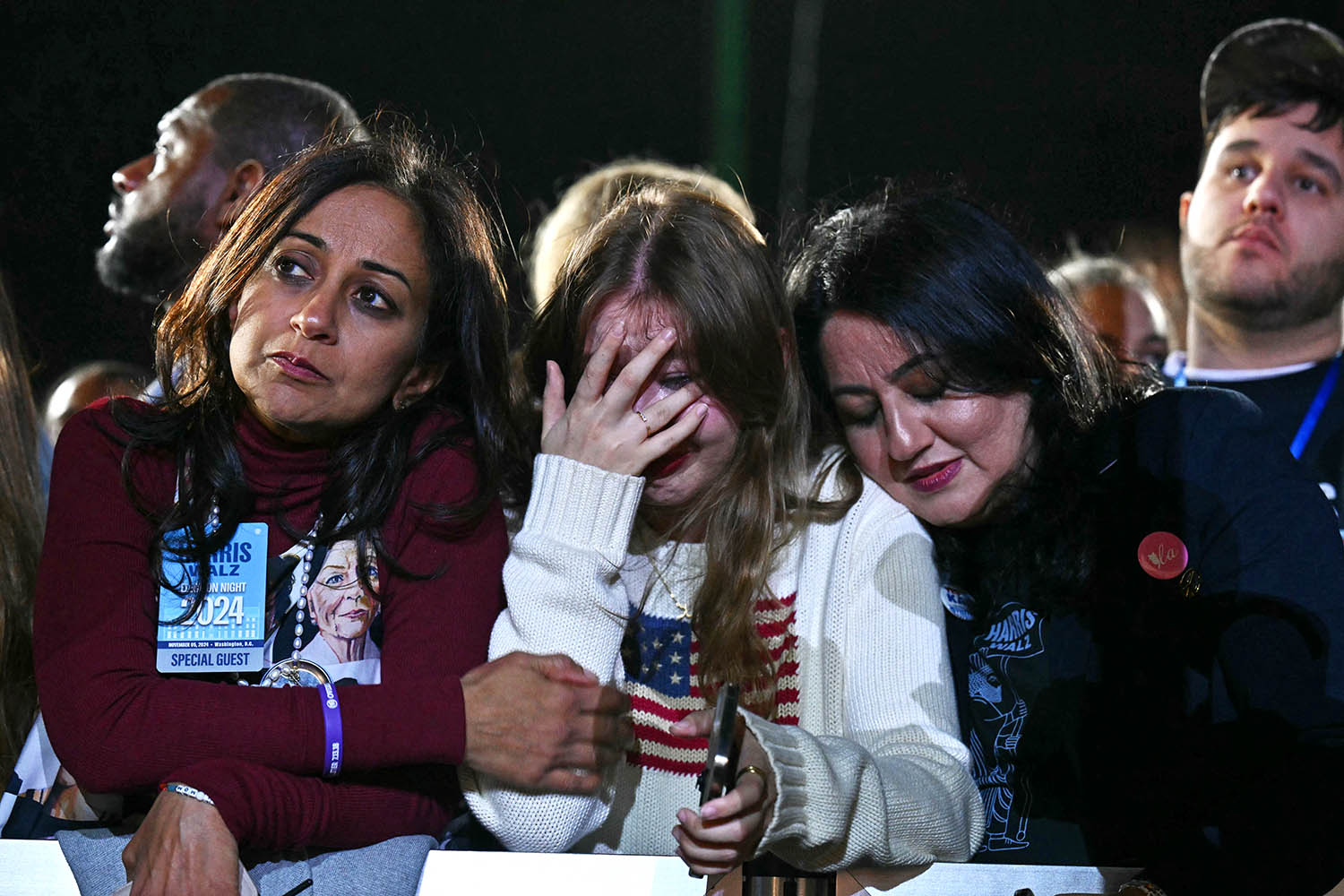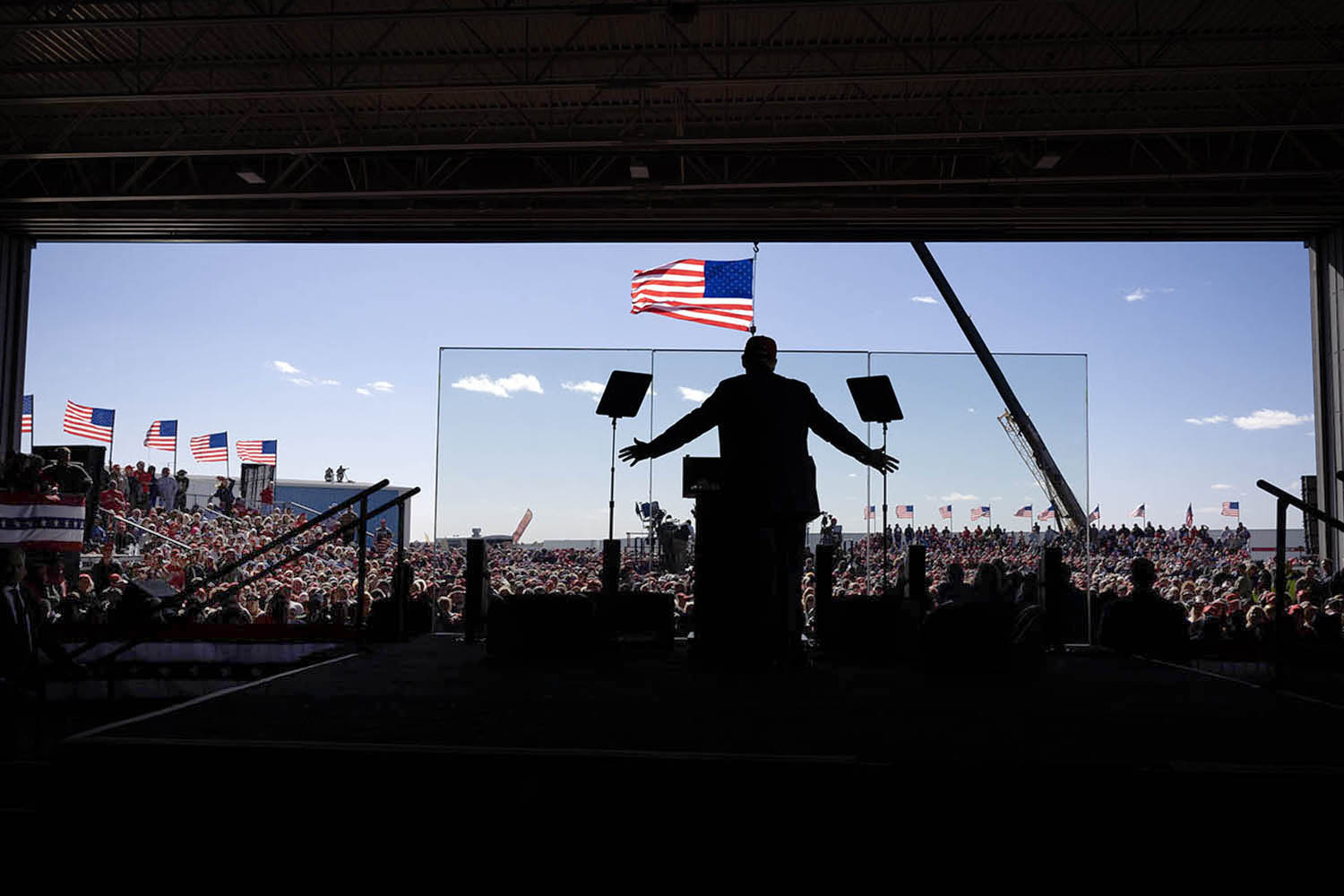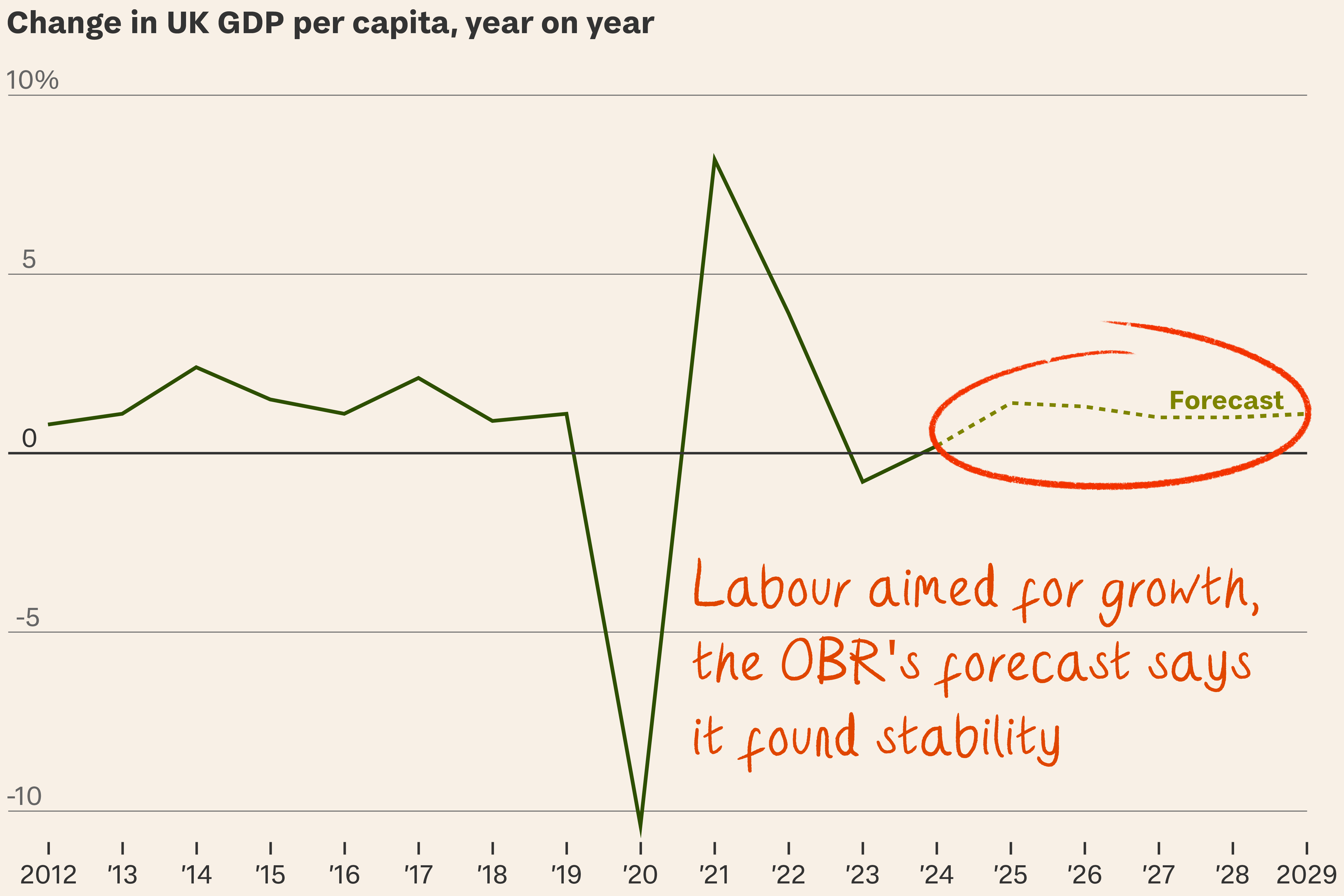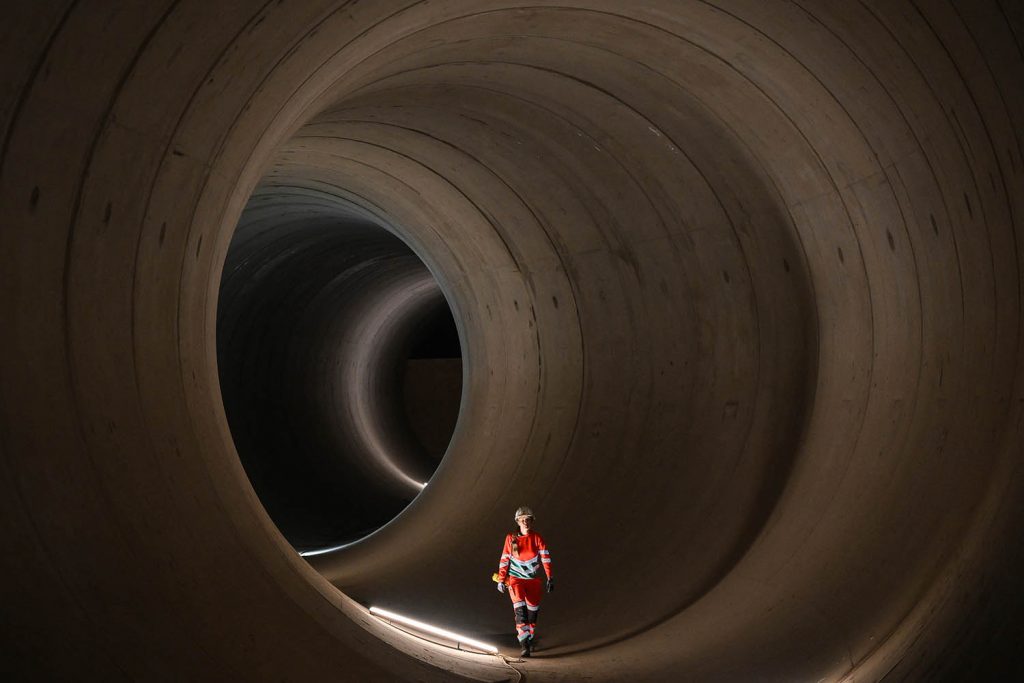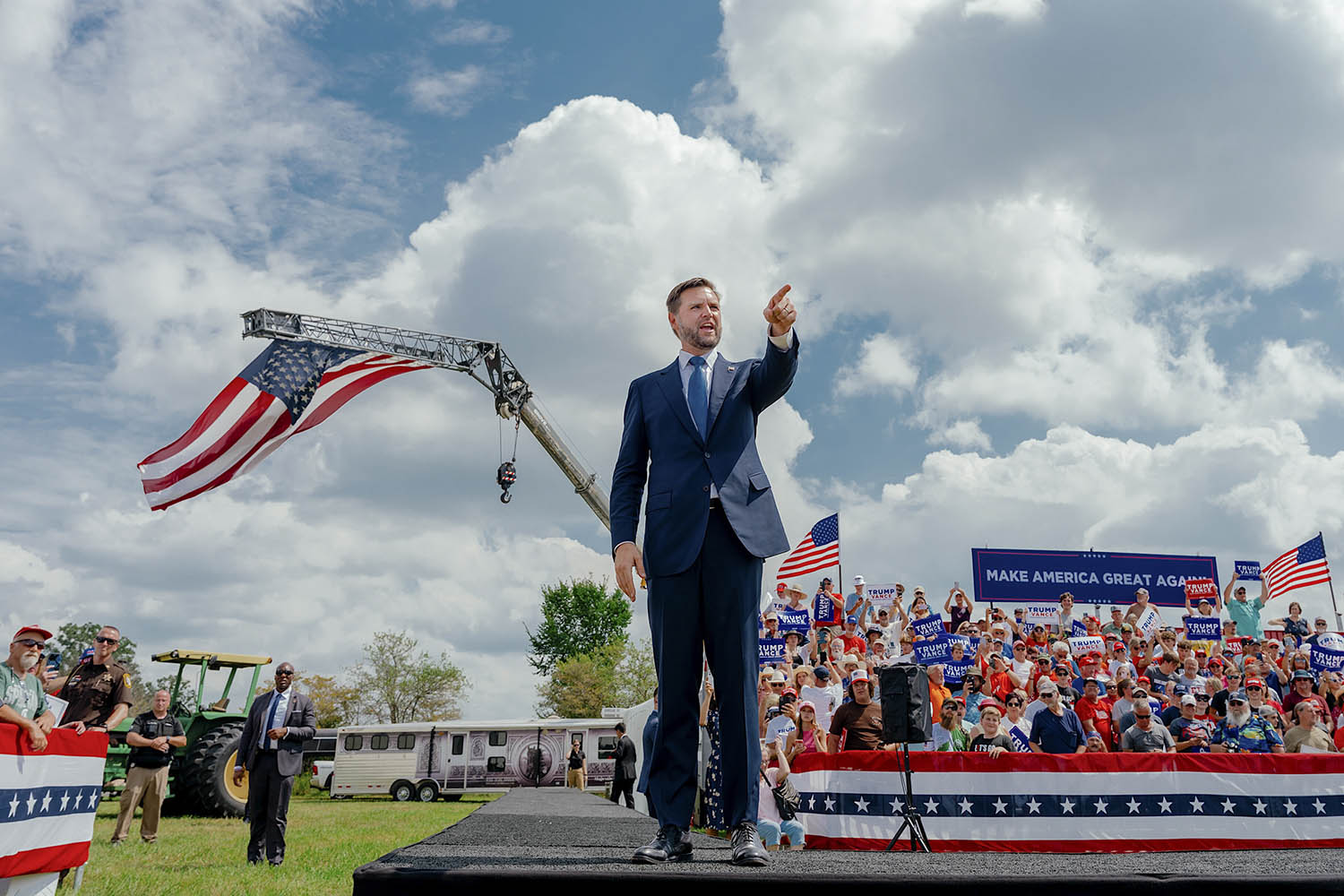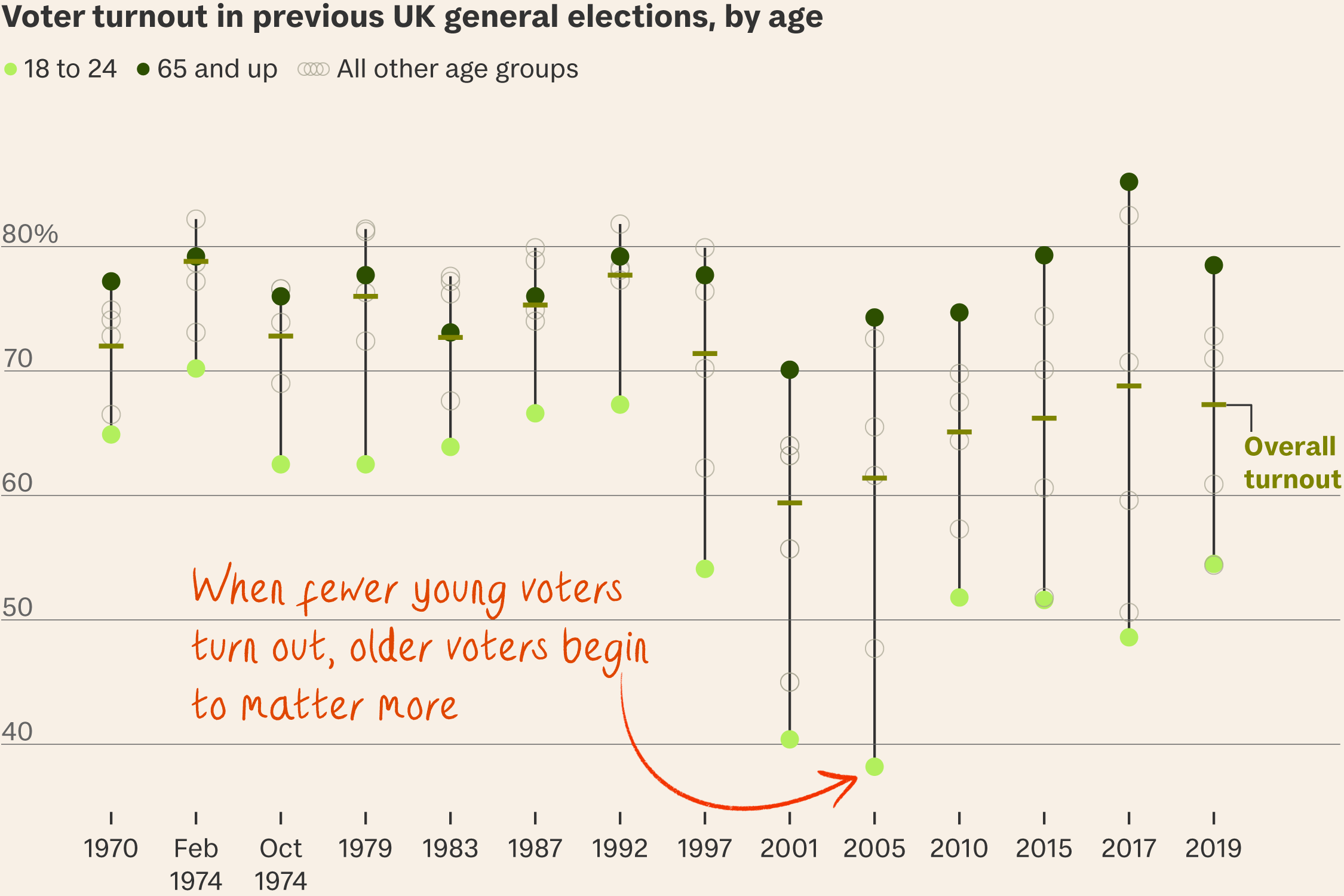
His problem is that they don’t vote reliably Tory any more.
A week before he called the UK’s election for 4 July, Rishi Sunak was asked on television why he hated pensioners.
So what? He doesn’t. Far from it. Sunak prompted the question by making more pensioners pay tax in his last budget, but one week into the campaign he’s courting them as if his political legacy depended on them – which it does.
It’s worth his time and effort because
- older voters tend to vote;
- historically they’ve tended to vote Conservative;
- they’ve done well, relatively speaking, for the past 14 years; and
- Sunak can argue they would go on doing well if he were re-elected.
So far, so classically Conservative. But given how few people think he will be re-elected, this pitch for the over-65s has to be seen as damage limitation rather than a lunge for victory.
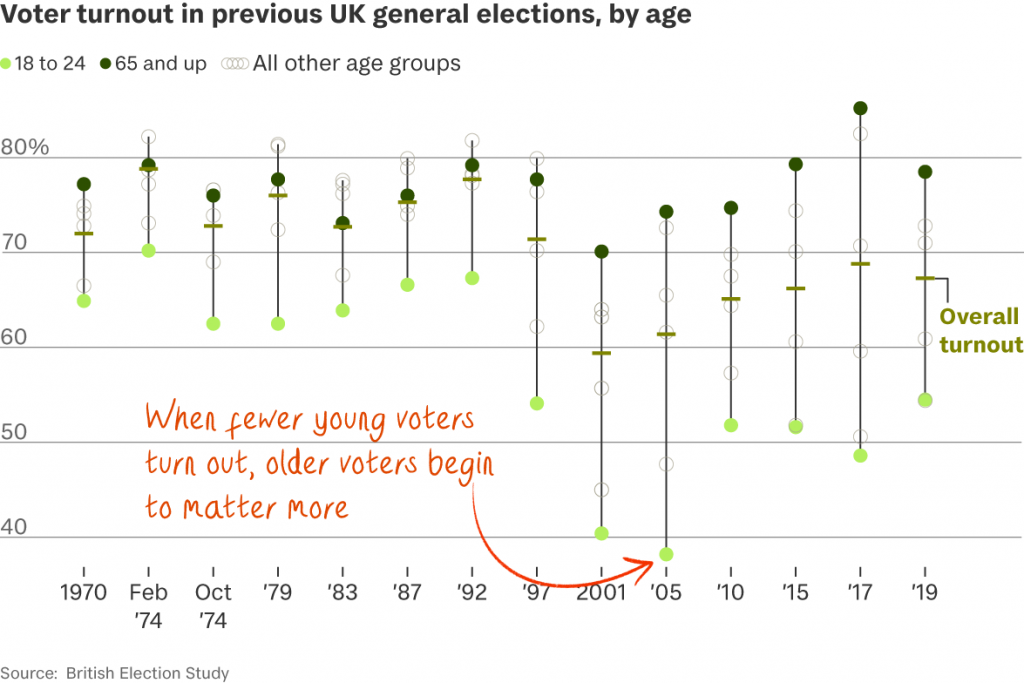
Turnout. Over-65s are so much more likely to vote than 18-24 year-olds that it’s worth a hard sell on policies tailored to their needs and world-views no matter how much they irritate the young. Hence, in the past four days alone
- National service, proposed by Sunak not for those who’d have to do it but for those who would approve. Polling earlier this year showed that less than a fifth of under-25s but more than half of over-65s back the idea of a year of military or community service.
- Triple lock plus. Barely a quarter of young voters approve of the original pension triple lock, introduced in 2010, which ratchets the basic state pension up by the larger of inflation, wages or 2.5 per cent. But four fifths of pension-age voters approve of it, and that share is unlikely to shrink now that the Conservatives have added a promise that people won’t have to pay tax on state pension income – as they were going to have to because Sunak himself froze tax thresholds as chancellor in 2021.
Each measure would cost about £2.5 billion. Neither will see the light of day unless the Tories stage an extraordinary comeback. But that’s not the point. The point is to bid for the maximum number of votes at minimum notional cost.
“The grey vote is real,” says Tim Bale of Queen Mary College, London. And pensioners “were by all accounts feeling left out since [Chancellor Jeremy] Hunt’s earlier cuts to national insurance didn’t do anything for them.”
Base slump. That grey vote used to be reliably blue:
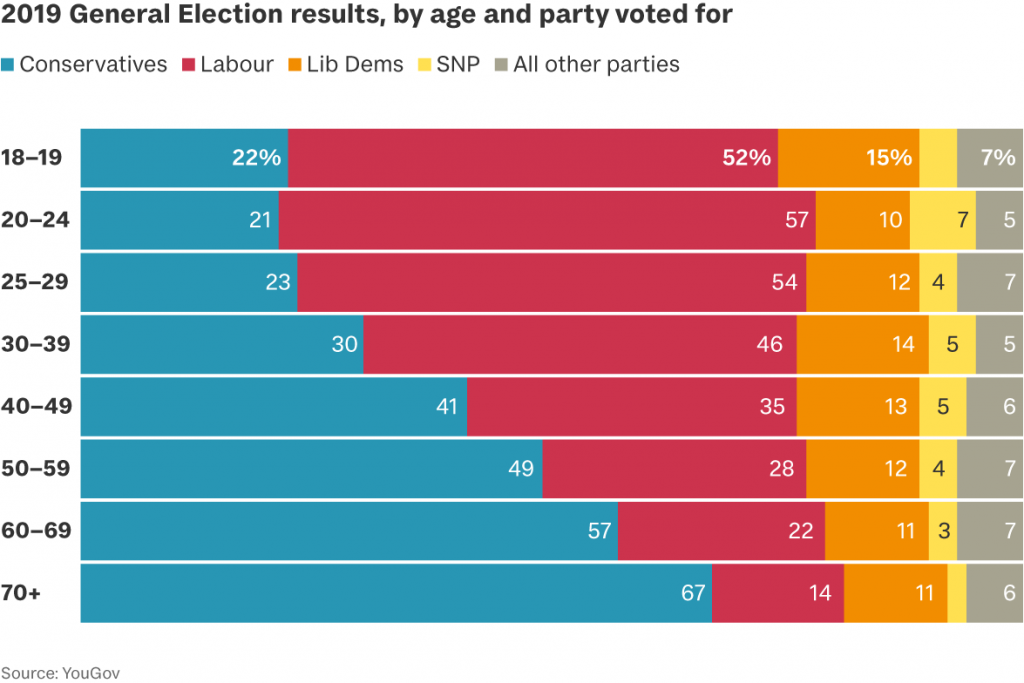
But Sunak’s base is crumbling. The share of pensioners planning to vote Conservative has collapsed since 2020, from 64 to 32 per cent, in three dramatic steps coinciding with Partygate, the Liz Truss debacle and the rise of Reform, the former Brexit Party.
If the Conservatives could shave a few points off Reform’s projected vote share in the 81 seats where over-65s account for at least a quarter of voters, Sunak could at least claim to have defended his core vote. Instead he’s expected to lose 33 of those seats in all and 29 more than in 2019.
The triple lock has not locked in the Tory vote.
What’s more… Less than 10 per cent of 18-39 year-olds intend to vote Conservative. If anything boosts turnout in this wide age band – debt, Gaza, housing shortages and the cost of living come to mind – all bets are off.




